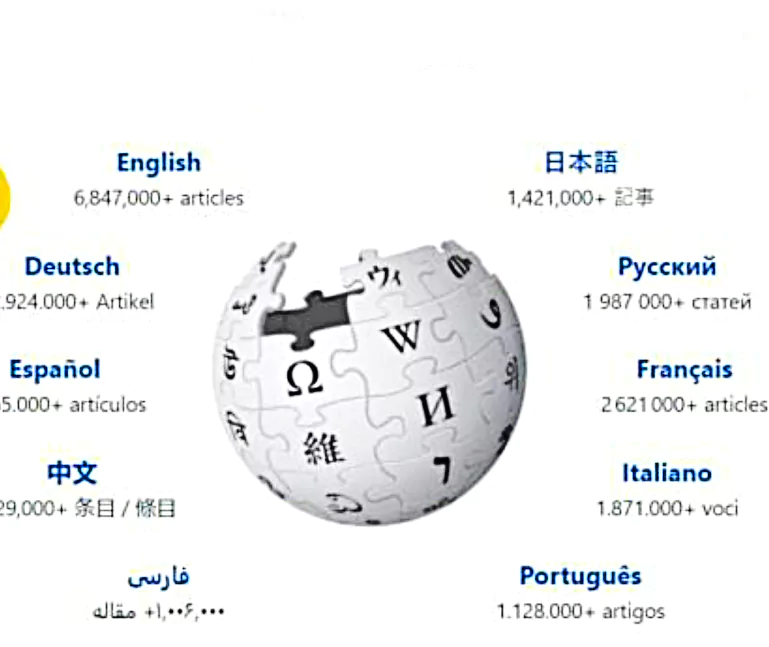News Agency Asian News International (ANI) sued Wikimedia Foundation for defamation over a Wikipedia description labelling it as a government propaganda propagator.
About the ANI-Wikipedia Dispute

- Initial Scrutiny: In 2020, Wikipedia’s ANI page reflected new reports scrutinizing the agency, sparking an edit war between seasoned editors and new accounts.
- Accusation of Bias: ANI was described as running a “pro-India fake news network” aimed at influencing European think tanks against Pakistan. This claim was later refined and clarified on the page.
- Defamation Claim: ANI found the description defamatory and filed a lawsuit in the Delhi High Court against the Wikimedia Foundation, seeking ₹2 crore in damages.
- Wikimedia Foundation’s Stance: Wikimedia Foundation defended the page, stating that the content is supported by reliable sources such as The Diplomat, EU DisinfoLab, and The Caravan magazine
- Court Proceedings: The Delhi High Court ordered Wikipedia to provide details about users who edited the ANI page along with presence of an authorized representative”, in the next hearing scheduled for October 25.
- The suit invokes provisions of the Information Technology Act, Section 79, which outlines the responsibilities of intermediaries like Wikipedia.
- Section 79 provides a framework for the exemption from liability for intermediaries in India regarding third-party content.
Enroll now for UPSC Online Course
Safe Harbour Clause
- Section 79 of the IT Act deals with safe harbor clause. It provides that intermediaries (like Wikipedia) are not liable for third-party content hosted on their platforms, as long as they meet certain conditions.
- Conditions for Immunity
-
- Non-Involvement: The intermediary should not initiate the transmission, select the receiver of the transmission, or modify the information in transmission.
- Compliance with Guidelines: The intermediary must comply with the due diligence requirements as prescribed by the central government (Intermediary Guidelines and Digital Media Ethics Code of 2021)
|
Wikipedia’s Global Legal Challenges
- Global Bans and Lawsuits: Wikipedia faces bans and lawsuits from individuals and organizations worldwide, with disputes over content descriptions.
- Targeting of Editors in Russia: Since Russia’s invasion of Ukraine, Wikipedia editors have faced arrests and intimidation by Russian authorities.
- Legal Ruling in Germany: In 2019, a German court ordered Wikipedia to remove an old version of an article about academic Alex Waibel.
- Lawsuits in the U.S.: Wikipedia routinely faces lawsuits in the U.S., but most cases are withdrawn or ruled in its favor due to strong legal protections for web platforms.
- Content Moderation: While Wikipedia aims for neutrality, it is accused of ideological bias, particularly leaning towards progressive-liberal views. OpIndia has criticized its editorial slant.
| Past Case of Content Vandalism on Wikipedia in India: In 2022, cricketer Arshdeep Singh’s Wikipedia page was briefly vandalized, drawing government criticism. |
Vulnerabilities of Wikipedia
- Edit Wars: Content on Wikipedia can be subject to continuous back-and-forth editing, particularly on contentious topics, leading to prolonged disputes among editors.
- Targeted Editors: Wikipedia editors can be unmasked or targeted, as in the case where ANI sought details of specific editors through a court order.
- Censorship Threats: Governments can threaten to block the site if it does not comply with legal demands, as seen in India and Russia.
- Bias Accusations: Wikipedia faces accusations of ideological bias, particularly from conservative groups, leading to challenges over its neutrality.
- Content Vandalism: Pages can be vandalized, like in the case of cricketer Arshdeep Singh, requiring immediate editorial intervention.
- Lack of Blocking Mechanism: Unlike social media platforms, Wikipedia lacks a formal mechanism to block specific content in response to legal orders, making it vulnerable under some national laws.
- Mirrored “Fork” Sites: Content licensed under Creative Commons can be mirrored and censored, as in Russia, to reflect government narratives.
Check Out UPSC CSE Books From PW Store
Legal Basis for Case Against Wikipedia
- Section 79 of the IT Act, 2000 (Safe Harbour Clause): ANI may argue that Wikipedia, as an intermediary, failed to fulfill its due diligence under this section, which includes the removal of defamatory content upon notification.
- Section 79(3) of the IT Act, 2000: ANI could claim that Wikipedia did not promptly remove or disable access to defamatory material after being notified, thus losing its safe harbor protection.
- Intermediary Guidelines and Digital Media Ethics Code, 2021: ANI might argue non-compliance with these guidelines by Wikipedia, particularly in handling contentious content.
- Defamation Claims: ANI considers Wikipedia’s content defamatory, seeking damages under civil law for harm to its reputation.
![]() 12 Sep 2024
12 Sep 2024
